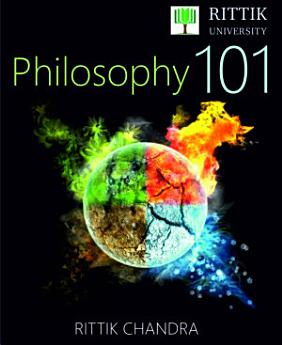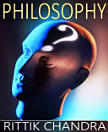Rittik University Philosophy 101
মাৰ্চ ২০১৪ · BookRix
৩.০star
১ টা পৰ্যালোচনাreport
ইবুক
410
পৃষ্ঠা
family_home
যোগ্য
info
reportমূল্যাংকন আৰু পৰ্যালোচনা সত্যাপন কৰা হোৱা নাই অধিক জানক
এই ইবুকখনৰ বিষয়ে
Philosopher RITTIK CHANDRA’s "Philosophy 101" aims to tell what philosophy is. The present book has been made as clear and simple as possible, that no unnecessary difficulties may be placed in the path of those who enter upon the thorny road of philosophical reflection. The subjects treated are deep enough to demand the serious attention of any one; and they are subjects of fascinating interest. That they are treated simply and clearly does not mean that they are treated superficially. Indeed, when a doctrine is presented in outline and in a brief and simple statement, its meaning may be more readily apparent than when it is treated more exhaustively. For this reason, I especially recommend, even to those who are well acquainted with philosophy, the account of the external world contained.
Thus, it is maintained that there is a real external world presented in our experience—not a world which we have a right to regard as the sensations or ideas of any mind. It is maintained that we have evidence that there are minds in certain relations to that world, and that we can, within certain limits, determine these relations. It is pointed out that the plain man's belief in the activity of his mind and his notion of the significance of purposes and ends are not without justification. It is indicated that theism is a reasonable doctrine, and it is held that the human will is free in the only proper sense of the word "freedom." Throughout it is taken for granted that the philosopher has no private system of weights and measures, but must reason as other men reason, and must prove his conclusions in the same sober way.
Thus, it is maintained that there is a real external world presented in our experience—not a world which we have a right to regard as the sensations or ideas of any mind. It is maintained that we have evidence that there are minds in certain relations to that world, and that we can, within certain limits, determine these relations. It is pointed out that the plain man's belief in the activity of his mind and his notion of the significance of purposes and ends are not without justification. It is indicated that theism is a reasonable doctrine, and it is held that the human will is free in the only proper sense of the word "freedom." Throughout it is taken for granted that the philosopher has no private system of weights and measures, but must reason as other men reason, and must prove his conclusions in the same sober way.
মূল্যাংকন আৰু পৰ্যালোচনাসমূহ
৩.০
১ টা পৰ্যালোচনা
এই ইবুকখনক মূল্যাংকন কৰক
আমাক আপোনাৰ মতামত জনাওক।
পঢ়াৰ নির্দেশাৱলী
স্মাৰ্টফ’ন আৰু টেবলেট
Android আৰু iPad/iPhoneৰ বাবে Google Play Books এপটো ইনষ্টল কৰক। ই স্বয়ংক্রিয়ভাৱে আপোনাৰ একাউণ্টৰ সৈতে ছিংক হয় আৰু আপুনি য'তে নাথাকক ত'তেই কোনো অডিঅ'বুক অনলাইন বা অফলাইনত শুনিবলৈ সুবিধা দিয়ে।
লেপটপ আৰু কম্পিউটাৰ
আপুনি কম্পিউটাৰৰ ৱেব ব্রাউজাৰ ব্যৱহাৰ কৰি Google Playত কিনা অডিঅ'বুকসমূহ শুনিব পাৰে।
ই-ৰীডাৰ আৰু অন্য ডিভাইচ
Kobo eReadersৰ দৰে ই-চিয়াঁহীৰ ডিভাইচসমূহত পঢ়িবলৈ, আপুনি এটা ফাইল ডাউনল’ড কৰি সেইটো আপোনাৰ ডিভাইচলৈ স্থানান্তৰণ কৰিব লাগিব। সমৰ্থিত ই-ৰিডাৰলৈ ফাইলটো কেনেকৈ স্থানান্তৰ কৰিব জানিবলৈ সহায় কেন্দ্ৰত থকা সবিশেষ নিৰ্দেশাৱলী চাওক।







